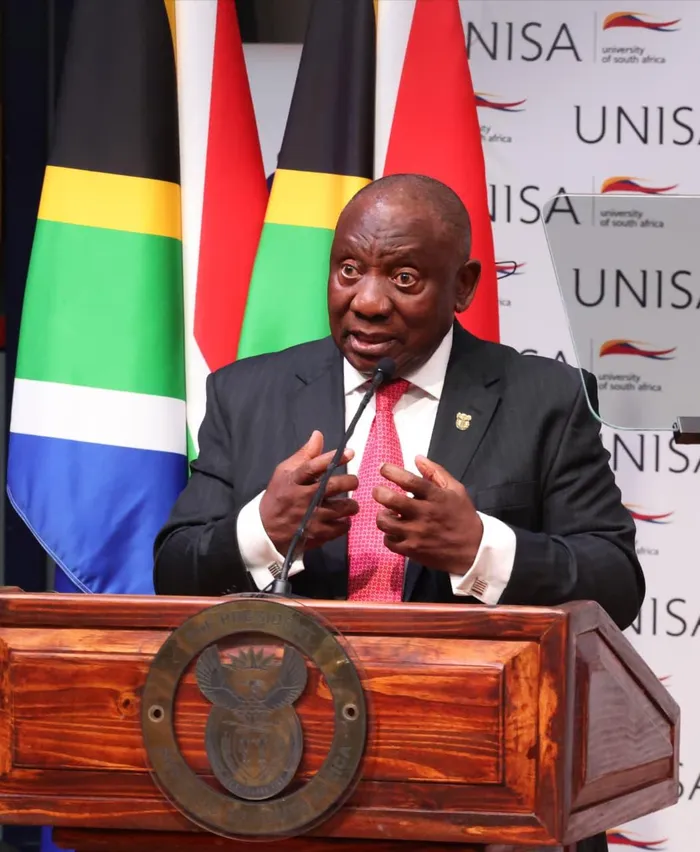
President Cyril Ramaphosa defended the convention and criticised those who chose to boycott it.
Image: GCIS
Treasury has announced a significant reduction in the cost of the National Dialogue, slashing the budget from R740 million to an estimated R441 million, excluding unexpected expenses.
Despite this decrease, political analyst Solly Rashilo argues that the revised figure remains excessive for what critics have labelled a mere “talk shop.
In response to questions, the Treasury said: “The current estimated cost of the dialogue is R441 million, excluding contingencies.”
It also noted that around half of the amount is expected to be raised through sponsorships and donations.
It added that the budget is under continuous review to minimise costs.
“These costs are being revised on a continuous basis to minimise the cost of various dialogues expected to be held at a municipal, district and provincial level.”
The National Convention of the National Dialogue, held at the University of South Africa (Unisa) in Pretoria from August 15 -16, has faced widespread criticism as a mere “talk shop” by political parties, organisations and lobby groups.
The event has also been marred by controversy, with several prominent figures and organisations, including former president Thabo Mbeki, legacy foundations, civil society groups and Government of National Unity (GNU) members - withdrawing from the process.
Legacy foundations such as the Thabo Mbeki Foundation and the Desmond and Leah Tutu Legacy Foundation voiced concern over the rushed implementation, lack of transparency around the initial R740 million budget, and a perceived shift toward government control.
Political analyst Solly Rashilo said the revised budget of R441 million, although lower than the original, remains excessive.
“Even with half potentially covered by sponsorships, leaving taxpayers with a R220 million bill, it’s unjustifiable when hospitals and schools are struggling,” Rashilo said.
“Voters already set the mandate via elections - manifestos spelled out the priorities.
“Critics calling it a ‘talk shop’ are right. We need action, not more chatter. Every rand must deliver results, or it’s just burning money while people suffer.”
Rashilo said public outcry led to the budget cut.
“The R740 million figure sparked rage from unions, opposition parties and even GNU allies, with some legacy groups pulling out,” he said.
“By August, President Ramaphosa had to promise a cheaper plan. The drop to R441 million shows citizen pressure works, but it’s still not enough - scrap the whole thing and focus on what voters already demanded.”
He criticised the National Dialogue as political posturing.
Ramaphosa defended the convention and criticised those who chose to boycott it.
He said the National Dialogue is “a call to action, not a platform for spectators”.
The GNU members, including the DA and Freedom Front Plus (FF Plus) withdrew from the dialogue, accusing the ANC of using the platform to boost its image ahead of the 2026 local government elections.
However, the ANC dismissed the claims.
Opposition parties, including the uMkhonto weSizwe (MK) Party, have labelled the process an “expensive sideshow” intended to bypass Parliament and centralise power in the Presidency.
Controversial lobby groups AfriForum and Solidarity have also withdrawn from the dialogue.
Cape Argus